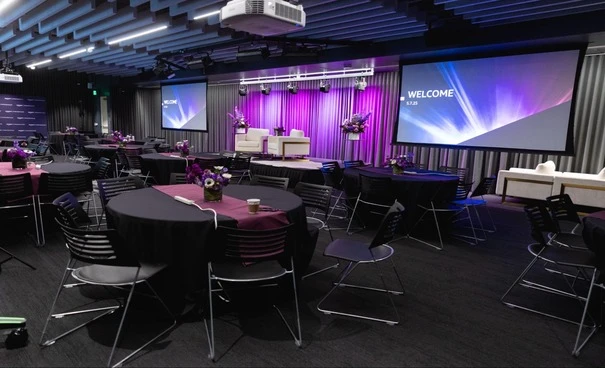Event planners have the power whether they want to create a lackluster meeting or an event people actually talk about the next day (for the right reasons).
Corporate event planning, over the years, has changed a lot as the attendees and events’ trends start to change.
It has become essential to fully understand corporate event planning and how to do it like a pro in the modern age.
Whether it’s a high-stakes product launch, an internal team summit, or your annual client mixer, how you plan it makes the difference.
And that’s that!
This guide is a complete walkthrough of corporate event management, including benefits, potential hiccups, and the process from launch to post-production.
Let’s cut the noise and get into it.
What is Corporate Event Planning?
The direct answer to define corporate event planning is a strategic and goal-driven process of organizing events for businesses, enterprises, and professional audiences.
The main goal or purpose of a corporate event is to reflect the values, messages, and objectives in a professional way.
If we talk about the photography scope in corporate event planning, it needs to reinforce the bigger picture.
Starting from venue, agenda, tech, catering, signage, to the welcome handshake.
The scope of corporate events is beyond the mere strategicness we talked about.
It incredibly varies according to the organization’s needs, such as:
- Internal meetings like annual kickoffs, team-building offsites, and leadership summits
- Client-facing events such as appreciation dinners or product demos
- Public-facing events like trade shows, launch events, or thought leadership panels
- Hybrid and virtual experiences that expand reach while maintaining engagement.
When an event production company works with a strategy to make it well-executed, it brings out a number of long-term benefits.
Some of them are explained below.
Benefits of Well-Executed Corporate Events
You don’t need a calendar filler; you want to create a strategic asset that serves its purpose to the core.
From building relationships, branding, to employee engagement, and lead generation, there are tons of wonders that a well-executed corporate event can do.
1. Builds Stronger Relationships

Image Courtesy Pinterest
With time, the competition is getting tougher.
It has become challenging for organizations to stand out and create relationships just by existing.
That is where corporate events jump in and bring all aspects together, i.e., clients, partners, employees, and stakeholders.
They basically serve as a window to understand an organization better and see how it operates in a bigger picture.
It can be said without a doubt that face-to-face time helps build trust, encourages open conversations, and creates a space for collaboration.
That emails and video calls can’t replace.
2. Improves Brand Perception
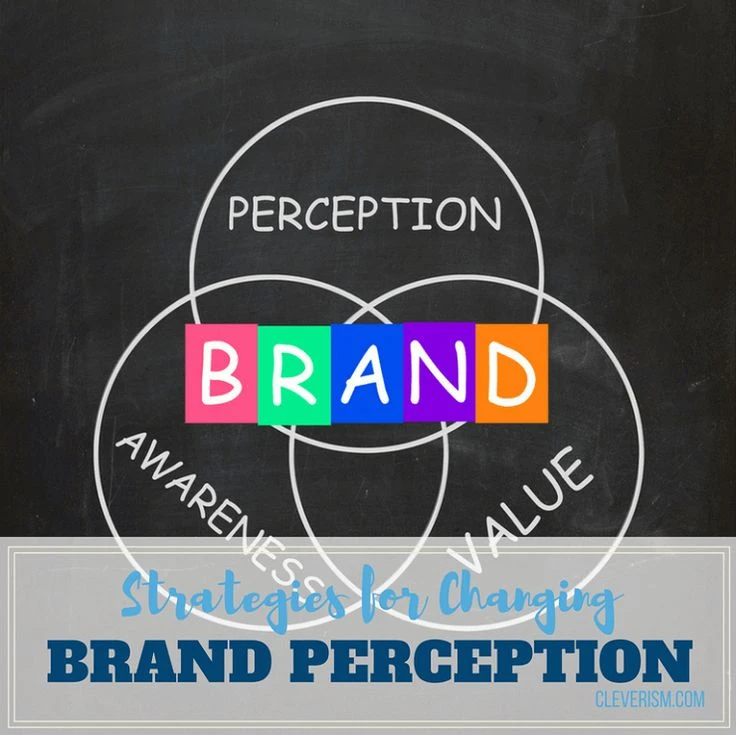
Image Courtesy Pinterest
You will find a brand at every step of your browsing for every product and service.
However, there will only be a few that have built their trust, genuineness, and strong perception among their users/customer base.
How did they build that? Just by digital presence? Absolutely no!
They showed up. At the event, and presented themselves.
This shows that by organizing events, you let your brand get exposure and let the audience know who you are.
A well-run event shows that you are professional, organized, and serious about your business, thus helping your brand as credible and capable.
3. Boosts Employee Engagement

Image Courtesy Pinterest
Another top benefit of corporate events is that they boost employee engagement.
Internal events like team-building sessions, company offsites, or annual meetings give employees a chance to connect outside.
That being said, it is extremely essential to choose those corporate event production companies that can enable your organization to achieve outcomes.
These outcomes can be improving morale, revenue growth, and making employees feel valued.
4. Drives Sales and Lead Generation

Image Courtesy Pinterest
If an event involves prospects or clients, such as product launches or networking sessions, there is a fair chance that it is on a big spectrum.
It can directly lead to business opportunities.
However, it must be noted that if you want your event to catch low-hanging fruit seamlessly, then a thoughtful event production is important.
Whether it is a live demo, a presentation, or even a conversation, each of them can push deals forward in a way online touchpoints often cannot.
Hence, the value of event production management shall not be overlooked.
Types of Events That Corporate Event Production Companies Handle
Corporate event planning is a term that is inclusive of a wide range of events serving different business goals.
Event production companies are responsible for the technical planning, logistics, and execution strategy behind the scenes.
Whether it is internal team alignment, external brand production, national or global level conferences.
Below are the most common types of events such companies handle:
1. Conferences and Seminars
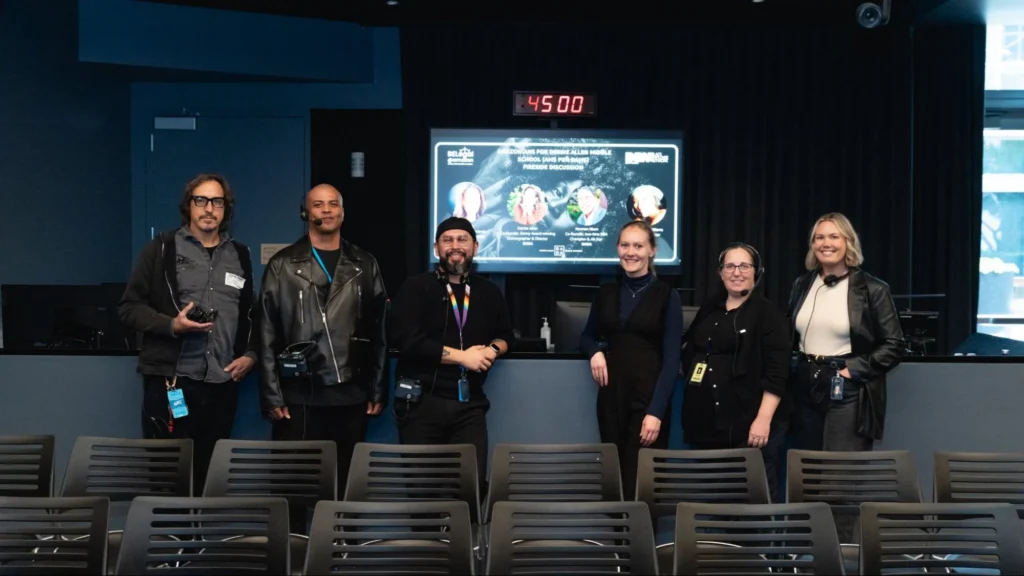
As you might suppose from the name, these are large-scale events that need a thoughtful and well-planned strategy from professionals in the field.
Oftentimes, you will have events that are content-driven events focused on knowledge sharing, industry trends, and professional development.
Production companies manage stage design, audio-visual setup, speaker coordination, attendee registration, and overall flow of the event.
If you want to execute the step seamlessly, then hiring professional event production companies would be the right way to go.
2. Product Launches

Many brands and organizations overlook the importance of having a well-executed event.
Also, one thing’s for sure that the better your event is planned, the better attendees can focus on your product.
The main work of the event product companies is to make every process run smoothly i.e., from staging and lighting to live demos and media coverage.
It has to be the number one goal of the corporate event planning companies.
The product must be presented clearly, attract media attention, and impress potential clients or investors.
Keeping all this in view, you one hundred percent cannot put it on stake.
3. Trade Shows and Exhibitions

Corporate event planning is not limited to conferences or product launches.
It goes far beyond it.
Now, events like trade shows and exhibitions are also held on a large scale, and therefore, such events need proper execution.
The event production companies handle booth design, signage, tech installations, and logistics for trade shows and exhibitions.
It helps businesses stand out in competitive trade show environments.
Not only that, but they also often coordinate multiple vendors, custom displays, and branded experiences.
4. Corporate Meetings and Annual General Meetings (AGMs)

Corporate meetings and AGMs hold great value for large-scale enterprises, and for such events, corporate event planning is required.
Whether it is a board meeting or company-wide town hall, all such events require professional execution.
5. Award Ceremonies and Gala Dinners

There is never a second chance when it’s about organizing award ceremonies and gala dinners.
These formal events require extra diligence and attention from decor, lighting, sound, to scheduling.
To deliver a top-notch experience, event production companies bring a custom event strategy for guests and honorees.
6. Virtual and Hybrid Events
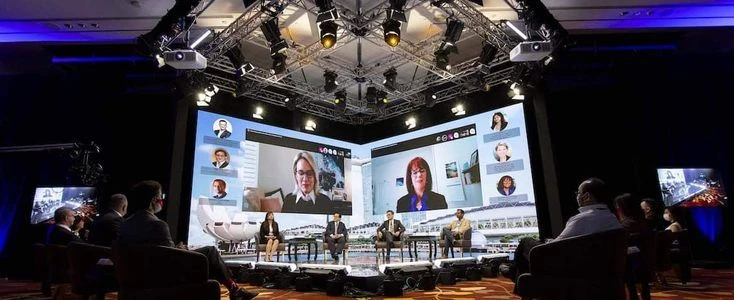
Image Courtesy Pinterest
There was a time when events were limited to in-person attendees.
However, with time, virtual and hybrid events have increased as companies move toward this trend.
When there are large-scale virtual and hybrid events, the assistance of technical event production companies is always required.
The assistance includes managing equipment, backend, and other miscellaneous factors.
Corporate event production companies look after the strategy and execution of such events from launch till post-production.
Now,you have understood different categories of corporate events, let’s move to the step-by-step corporate event planning guide.
It’s a complete walkthrough of ‘how to do it’.
Step-by-Step Corporate Event Planning Guide

Image Courtesy Pinterest
One thing to get straight is that corporate event planning is not a piece of cake.
A lot goes on behind the curtains, and this is what we are going to unfold in this guide.
From setting basics to creating a strategy, and execution, it’s a tireless series of event management.
Below are the steps that can help you understand corporate event planning.
1. Set clear goals and a budget
Before you start to organize an event, you must have a clear goal and purpose.
This will help not only in the execution but also for event production management companies to visualize and strategize the event.
Building client relationships? Launching a podcast? Product Launch? Or engaging employees?
Once you have finalized the version of your goals and purpose, the next step is to create measurable KPIs.
KPIs include number of attendees, social mentions, qualified leads, or employee satisfaction scores.
These will help you evaluate the overall corporate event.
Next comes budgeting.
The funding has to be put well, and therefore, the funds must be allocated across major categories:
- Venue and catering
- A/V and tech
- Marketing and design
- Guest speakers or entertainment
- Swag or branded materials
- Staff and logistics
Leave a buffer (usually 10–15%) for last-minute adjustments.
And in addition to these, track all expenses in a shared document or project management tool for full transparency and control.
We don’t leave loopholes!
2. Choosing Venue (The right one, obviously)!
While you are on the go for corporate event planning, choosing the right venue is one of the most crucial decisions.
The venue sets the tone, and to determine that there are certain considerable factors.
Below are some of the most important factors you should consider when it comes to planning for the venue:
- Capacity: Make sure it comfortably fits your expected audience and can take up more than the mentioned number of people/attendees.
- Location: When it comes to location, make sure it has easy accessibility, parking, and feasible transportation facilities.
- Layout: Being a corporate event planning company, make sure to look for the factors such as networking zones, or tech setups.
- Technical compatibility: If you want your event to run without any internet lag, then a technical compatibility check is a must.
Make sure the team checks for high-speed internet, built-in A/V, lighting, and acoustics.
You can add more to the list based on your event type and if there are any technical specifications from the client.
Pro tip: Book the venue early, especially for peak seasons, and review all contracts for hidden fees, cancellation clauses, and access timelines.
3. Select vendors and technology
In the modern age of events, vendors and technology go hand in hand.
On one hand, you will need various vendors and caterers, while on the other hand, you will need the right technology (or you can say tools).
Depending on your event type, you’ll need to bring in various vendors (some of which are mentioned below):
- Catering companies (with options for dietary restrictions)
- Audio-visual teams for lighting, microphones, LED screens, etc.
- Event decorators for stage design, booth setups, and signage
- Entertainment or MCs, if applicable
- Security staff and first aid, especially for a large event
And if we talk about the technology, select tools that match your format:
- Registration platforms like Eventbrite, Cvent, or Bizzabo (look for factors and create comparisons to find the best one for your event).
- Virtual event software like Hopin, Zoom Events, or ON24 for hybrid setups
- Audience engagement tools like Slido or Mentimeter
- Event apps to share schedules, maps, and updates with attendees
Never forget: Always test integrations ahead of time, and assign someone to oversee all tech on event day.
4. Create a timeline and assign roles
Always know that the successful are those who understand the term delegation and create apt timelines.
You can do corporate event planning management in a more smooth way if you break it into phases (pre-event, event day, and post-event).
For this, you can develop a timeline that includes:
- Vendor booking deadlines
- Content submission and approvals
- Marketing launch and reminder emails
- Run-of-show script (minute-by-minute breakdown of event day)
As we have mentioned about using tools and assignment roles, you can use various tools like Trello, Asana, or Notion to manage tasks.
For corporate event management, there are a ton of roles; however, following rules should be assigned ‘CLEARLY’.
- Event coordinator
- Marketing lead
- Speaker liaison
- Tech manager
- On-site logistics lead
5. Plan content/sessions
Many event production management companies tend to overlook this step (when actually they shouldn’t).
Content is the core of your event as this is what attendees actually come for.
If you are a corporate event planning company and planning content or event sessions, then ensure that the content is based on the audience’s needs.
Below is the list you might want to look up:
- Keynotes that provide value or thought leadership
- Breakout sessions for specialized topics or team discussions
- Panel discussions to share multiple viewpoints
- Interactive formats like workshops, Q&A, and demos
Also, while preparing content for sessions, make sure you have planned for transitions, breaks, and session timing.
In addition to that, secure speakers early, provide briefing docs, and schedule rehearsal sessions to test slides, microphones, and flow.
For hybrid or virtual setups, factor in screen fatigue as the attention span is usually shorter.
Therefore, keep online segments shorter, interactive, and visually engaging.
6. Marketing and promotion strategy
This is one of the most crucial steps for corporate event management.
The team has to be savvy and proactive so that nothing goes around and the target audience starts getting aware of it.
The best time to start marketing is at least 4–6 weeks ahead of the event. Your strategy should include:
- A landing page with clear CTAs and registration forms
- Email marketing campaigns with RSVP reminders
- Organic and paid social media promotion (LinkedIn, Instagram, X)
- Influencer or partner collaboration if applicable
- Branded assets: banners, teaser videos, speaker graphics
Many organizations treat all the different audiences in the same manner.
You should avoid that. How?
It is best to segment your audience and personalize messaging because clients may need a different message than internal staff or partners.
You can use UTM tags to track what channels are driving sign-ups.
7. Day-of-event execution tips
You have to make sure that everything is in perfect alignment and nothing is off the beat in your event.
For this, the best practice is to run a technical rehearsal the day before so you have ample time to get everything working, even if something goes wrong.
For technical rehearsal, you must practice for lighting cues, transitions, audio levels, and speaker walk-ons.
And, on event day, make sure that the following points have been checked:
- Arrive early for setup and walk through the venue
- Distribute printed schedules and team contact sheets
- Set up a registration/check-in area with backups (QR, print, etc.)
- Test A/V equipment multiple times, especially mics and clickers
- Assign floaters to solve on-the-spot issues
- Monitor time closely to avoid overruns
It is best to keep communication open via group chat (e.g., Slack or WhatsApp) for real-time problem-solving.
Must have: An emergency plan for no-shows, delays, or tech failure.
8. Post-event feedback and analysis
A professional corporate meeting production company would never consider an event ended until they have taken the post-event feedback.
It helps them gather real-time insights and evaluate their performance.
Here is what you should do to gain that:
- Sending post-event surveys to attendees, sponsors, and speakers
- Reviewing attendance data, engagement levels, and session feedback
- Comparing results to your original KPIs
- Holding an internal debrief with the team and vendors
After gleaning this information, you must document what worked and what didn’t so that the same mistakes do not repeat in the future.
Corporate Event Planning Checklist
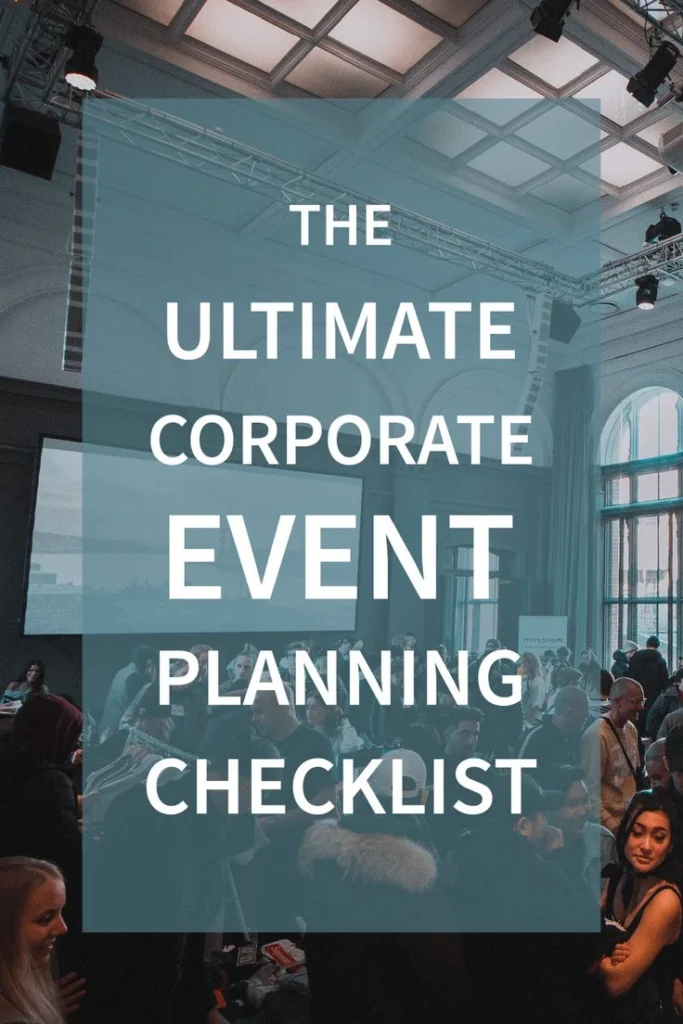
Image Courtesy Pinterest
The corporate event planning checklist is a quick tool that gives an aerial view of what you actually need to do to make your event impactful.
Below is the checklist that may vary (the numbers may increase or decrease depending on internal and external event factors.
- The first on the list you will have to explain the primary goal of the event to your team so that they are fully aware of it.
- Don’t forget to have a detailed budget because it covers all major categories and includes an amount for unprecedented costs.
- You should always pick a date that doesn’t overlap with holidays or industry events and give time for planning and promotion.
- Make your research strong. You’ll be able to book a venue that fits your audience size, technical needs, and brand tone..
- You must identify all required vendors, including catering, audio-visual, décor, and security, and begin securing quotes and contracts.
- Also, make your approach in such a way that speakers are confirmed in the first steps. So that you can provide them with clear briefs, and technical guidelines.
- See if the event branding and collateral are ready?
- If you are planning or leading an event, tools like Asana, Trello, etc., are must to create a timeline of tasks.
- Once all of the above are done, it’s time to set up registration. Make sure you’re tracking, get automated reminders, and attendee segmentation.
- As the event gets close, start working on your marketing campaign with a combination of email, social media, landing pages, and partner outreach.
- Try to have a full technical rehearsal with your internal team and all vendors at least one day before the event.
- Also, don’t forget to check for check-in systems, welcome kits, and printed materials for attendees and on-site staff.
- Also, add it in your list that every team member has a specific role and access to the schedule and contingency plans.
- You will have to be actively sharp at the day of the event as you might need to monitor the event closely, or manage troubleshoot issues.
- See how well the KPIs were achieved? It includes attendance rates, engagement metrics, and leads generated.
Common Mistakes to Avoid During Corporate Event Productions

Image Courtesy Bing
To err is human; pretty sure you’ve heard this all.
But, in large-scale event production and management, it is better to take all measures so that no major pitfalls occur.
We have curated a list of common mistakes that you must avoid during the management and production of such events.
1. Ignoring AudioVisual Needs
AV needs such as lighting, screens, sound, and power are crucial for the event.
They should not get disrupted mid-event.
Before you book the venue for the event, it is best to involve your AV team and decide on these requirements beforehand.
If you choose to involve your AV team too late, it might lead to technical limits or expensive last-minute fixes.
2. No Tech Rehearsals
Missing tech rehearsals? Not this time.
It is best to plan rehearsals so that you know speakers, mics, writes, slides, and other equipment are in sync and working well.
A short run-through helps catch problems early and ensures everyone knows the flow.
Trust us, doing this will make your event much better.
3. Not having Internet backup
Many event production companies only rely on Wi-Fi to manage their in-person, hybrid, or virtual events.
And, it is not the best way to approach this.
If you are managing an event that has livestreams, demos, or live Q/A, relying on Wi-Fi only is not reliable.
To avoid this, you must use wired internet or have a backup like a mobile hotspot to avoid performance issues and keep the lag at bay.
4. No Showcaller or Stage Lead
The stage timing and transitions are an integral part of corporate event planning.
Having one person to manage all of this costs a lot of time and money.
It is best to have a showcaller or stage lead that keeps everything running smoothly behind the scenes.
To avoid these mistakes, hiring experienced event production companies is essential.
Tips for Effective Corporate Planning

Image Courtesy Pinterest
Effective corporate planning takes a lot of factors into consideration.
From working on the business agenda, understanding the audience, leadership, to budgeting, there is a lot of work.
Below are tips (gathered from experienced and professional corporate event planners) that can enable you to make your event impactful.
1. Get Leadership Buy-In Early
The earlier you get the leadership of the event in, the better it is.
When you start working on the event planning, get stakeholders’ alignment at the earliest and upfront.
It will help in preventing scope creep later.
Let the stakeholders know your vision, expected outcomes, and budget rationale.
It will avoid any difference of interests and opinions, hence securing executive support and fast-track approvals.
2. Build a Cross-Functional Team
When it comes to organizing corporate events, different roles and people are involved.
The best approach is to involve people from operations, marketing, IT, finance, and other departments (if needed).
Corporate events require involvement from multiple departments, and coordination from early on avoids gaps and duplicated work.
3. Map the Attendee Journey
Understanding the attendee journey is a must and shall not be overlooked.
From registration to post-event follow-up, each touchpoint shall be designed for clarity and ease.
Make sure that the map equips attendees with clear signage, simple check-in, and fast support, as all these factors shape the experience.
4. Budget for Contingencies
When events on a large scale are held, contingencies become a part of it that we can’t translate into unexpected expenses.
One should not make a budget without allocating it for contingencies.
The best approach is to allocate 10–15% of your budget for last-minute needs such as extra chairs, extended AV time, or weather-related changes.
5. Don’t Overload the Agenda
Ask yourself a question:
“Is it too much?”, “Would the attendees get time to network, socialise, have downtime or spillover?”
You surely don’t want to make the corporate event overwhelming for attendees.
It must give value but it does not mean a packed schedule.
If you create a packed schedule for the event, it may result in reduced engagement and logistical stress.
6. Prep for Tech Failures
Every department must have backups.
It should be assigned to the lead roles so that there is no lag or error.
Whether it is extra microphones, speakers, a second laptop, printed copies of key materials, or other equipment, tech failure should never hinder an event.
Also, don’t forget to have someone who can step in if a speaker drops off unexpectedly.
7. Cost of Corporate Event Planning
The cost of corporate event planning depends upon a number of factors such as venue, number of attendees, amenities, location, goals, and complexities.
Below are the few factors that make the total cost:
- Venue rental
- Audio/Visual (AV) equipment and tech support
- Catering and beverages
- Speaker or talent fees
- Event staff and coordination
- Marketing and promotional materials
- Signage, decor, and branding
- Travel and accommodation (if applicable)
- Insurance and permits
- Contingency buffer (10–15% of total budget)
Conclusion
Corporate event planning must be thoughtful and well-structured. So that it supports business goals, strengthens relationships, and leaves an impression.
You can make your events successful only if you have clear objectives, thoughtful preparation, and attention to detail at every step.
It is best to avoid common mistakes, use the right tools, and stay aligned with your audience’s needs to make it happen.
GC Event Studio | Get Profession Event Planners
If you want a perfect mix of creativity, technology, and professionalism then GC Event Studio is right here to help you get all that.
From corporate event planning to social meetings, our team creates a strategy for every event that creates a lasting impression.
Get instant sharing, custom branding, and flawless photography that makes your event even more special and memorable.
Frequently Asked Questions
How far in advance should I start planning a corporate event?
You can start planning a corporate event at least 3–6 months in advance.
This way you will be able to have ample time to make everything go smoothly.
For small internal events, 4–6 weeks may be sufficient, depending on complexity.
Should I hire external vendors or manage everything in-house?
It depends on your team’s capacity and the event’s scale.
For big events, if you hire specialized vendors or utilize event production services, you will have smoother execution and fewer errors. So, make your decision wisely.
What’s the difference between an event planner and a production company?
Event planners focus on logistics, coordination, and planning. They are looking at the event from ground level.
A production company focuses on the technical side, i.e., AV, stage setup, lighting, and live execution.

